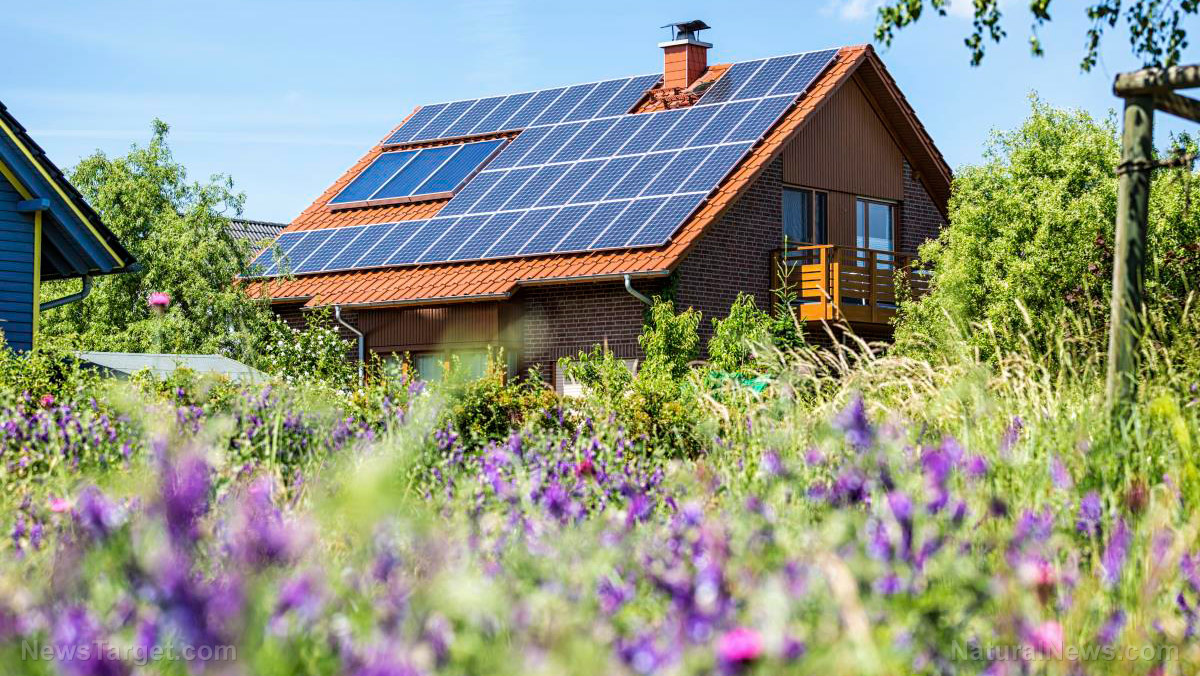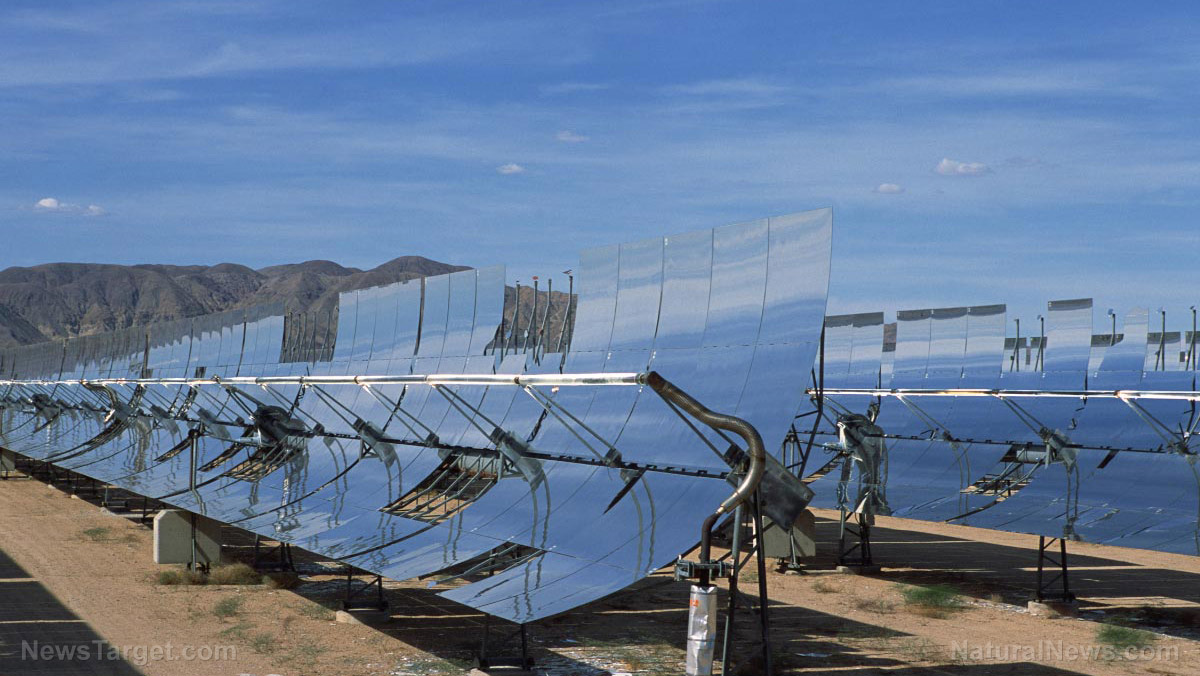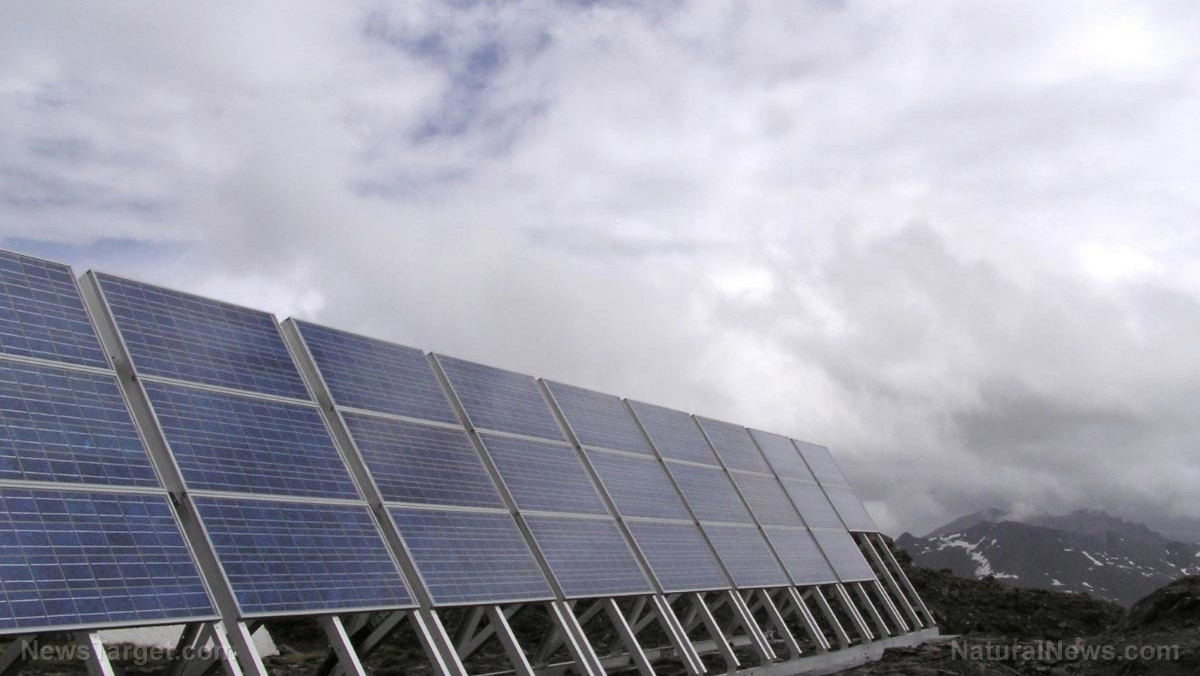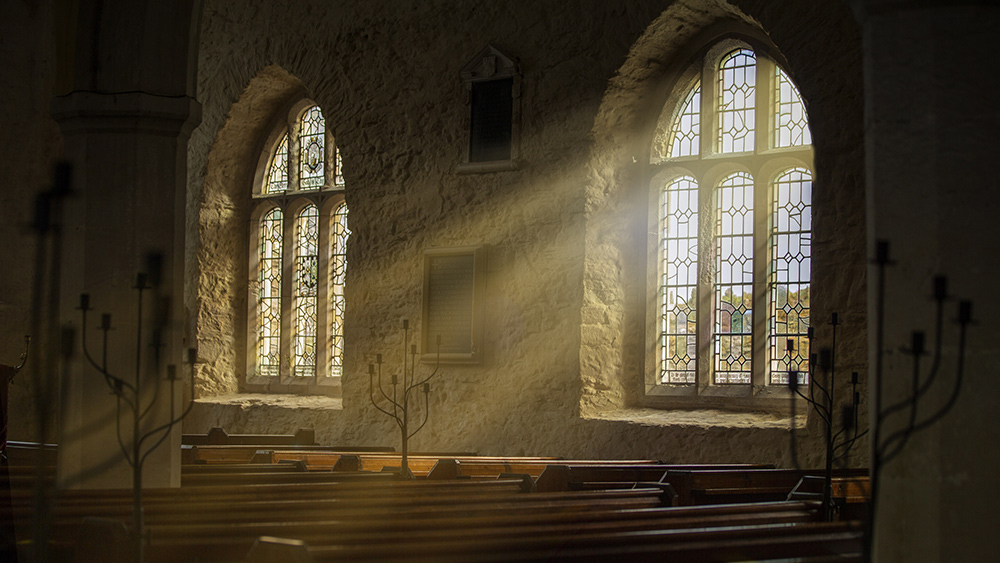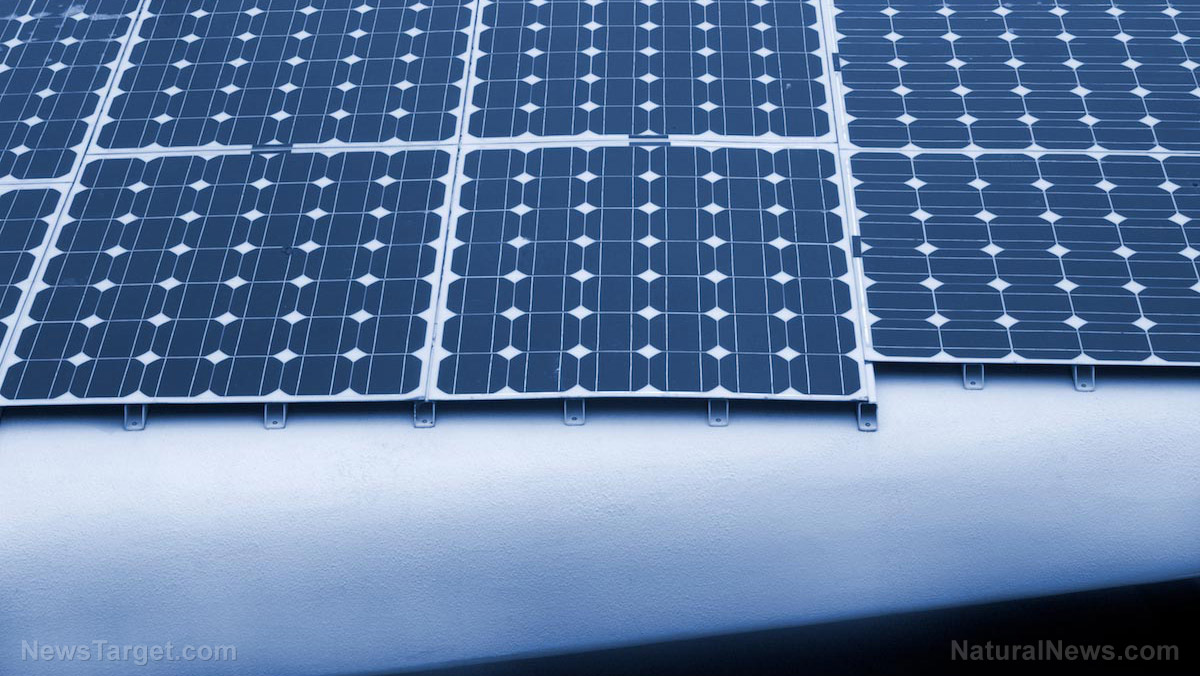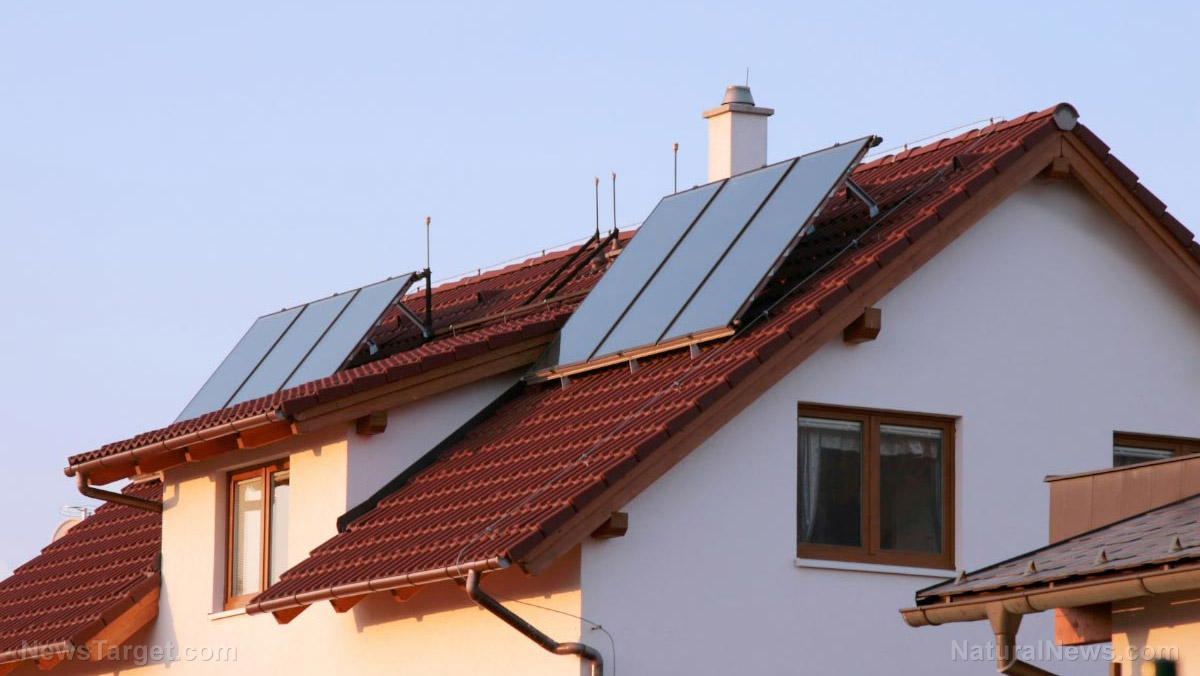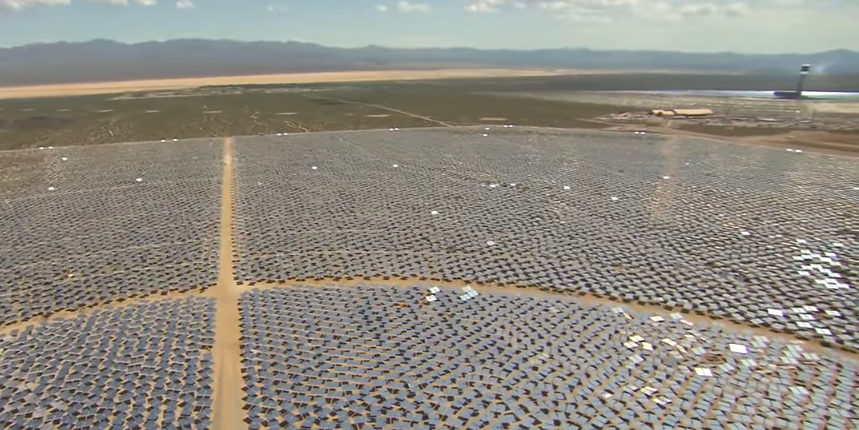LDS Prepper: How to run a solar panel system without sunlight, solar power
01/10/2022 / By Matthew Davis

David Gilmore, known as “LDS Prepper” with his over 500 videos on emergency preparedness, talks about how to run a solar panel system when there’s no sunlight and no solar power coming from the panels.
According to Gilmore, every full-time off grid home must have a backup generator. After a hurricane devastated Texas 15 years ago, Gilmore said he bought a generator for half the original price at Home Depot.
“I took this regular generator, it’s a 5000 watt generator with a 240-volt connection and a separate 120s.” (Related: During this year’s deep freeze, the Texas power grid was minutes from disaster because of dysfunctional generators.)
Gilmore said the generator has separate fuses for the 120 and the 240 and he didn’t select a generator, that was too hard to pull. From his experience, Gilmore noted that a generator that has battery and electric start is awesome because it’s going to be around 7,000 watts.
He said he used a 5,000-watt generator because it was the largest one that he could get without an electric start.
“I ran this generator during Hurricane Ike, or I should say after Hurricane Ike, and in Texas for two weeks. And I ran my house and my neighbors’ houses, I ran five homes off of this generator. So 5,000 watts is a lot of power, you can get along very easily with 2,000 or 3,000 watts.”
By using this kind of battery, Gilmore was able to save a lot of fuel.
“It’s just like if you have a big V-12 engine and it’s sitting there idling next to a four piston engine, the V-12 is going to run out of gas. If you have the same amount of gas in both engines three times faster or so then the force four piston engine is simply because it just takes more power to run. So running all those five houses unlimited appliances, we were able to do that on this 5000-watt generator.”
Cheap generator needs the right conversion kit
Gilmore noted that his cheap generator needs to have the right conversion kit.
“My conversion kit allows me to hook this up to natural gas, which is what I did in Texas, or propane, which I’m doing here in Idaho.” (Related: “Woke” California bill would ban gas-powered generators in part of the state that has more than its share of brownouts.)
He said he removed the air filter, put in a ring, put the air filter back on and attached the hoses. “I do highly recommend if you do have solar that you do have some kind of backup power source. In this case, it’s a tri-fuel generator because it runs on gasoline, propane and natural gas.”
There are certain things you need to have for a generator that is designed for use during an emergency.
“You don’t want hunting around for things during an emergency that’s why I have a pair of pliers which are needed to adjust my air fuel mixture. But it would be better if I had a crescent wrench to adjust air intake.”
Gilmore said he always has a starting fluid available especially during winter.
“I also keep a screwdriver because if I need to use that starting fluid, I have to remove the screws on the side of my air filters. I’m really grateful that I did this. And this is a quick release hose because you’re gonna reduce your connector that way I can connect it quickly to the generator.”
He added that he asked plumbers to install a quick release connection inside his house to connect the generator.
“I also keep my 240-volt cable here which goes into the generator and into the house,” said Gilmore, who asked electricians to install the connection that goes down on the panel inverter.
“When I can’t create any solar power and say for example, the battery bank was low, I could plug in my generator, and be charging up my battery bank and renting the property the same time. As far as the cable go, you always plug in the male connector first because those stick out and they get shocked,” Gilmore said.
Profane or natural gas can be used on the generator
“I have specific gas cans. And I know that kind of gas can is ethanol free. I also use it for my ATV [all-terrain vehicle] which I use quite a bit today to remove snow. So I just keep a little bit of gas in the gas tank on the top of the generator here,” said Gilmore who added that its best to have the switch on when using fuel in the lines when stopping the generator.
Gilmore said his generator can start on propane or natural gas. He noted that once the generator has warmed up to two or three minutes, he will grab the quick release connection and connect it to the generator.
“Then I’ll connect the other end over to my Quick Connect on the house. Once I have that hooked up, I will come in and turn off the gasoline because I don’t have propane, natural gas or gasoline going in. The gasoline that came down into the carburetor tube will burn up and automatically convert the gasoline to propane, which takes a minute or two to stabilize,” he explained.
This setup, according to Gilmore, will enable him within three or four hours to completely refill the battery bank by running the generator. He also reminded users not to run a generator inside a garage.
“When I run this generator I have the exhaust facing away from the house, away from the door so I don’t have any carbon monoxide poisoning,” Gilmore said.
“I just go in reverse operation. When I have the propane disconnected from the generator which takes about 10 to 15 seconds to die, I disconnect it from the generator. So I’ve already used up all the gasoline that was in the carburetor that’s burned off.”
Gilmore reminded his viewers that if they are going off the grid, they need to have multiple plans for their power, water, heat or whatever other things they may need.
Watch the video below to learn more about grid down and off grid emergency power.
This video is from the LDS Prepper channel on Brighteon.com.
Follow Survival.news for more news and information related to emergency situations.
Sources include:
Tagged Under: battery, blackouts, cable, carbon monoxide poisoning, carburetor, conversion kit, disaster, emergency, ethanol, fuel mixture, garage, gasoline, Gear, generator, houses, how-to, Master Lock, natural gas, off grid, piston engine, pliers, power grid, preparedness, profane, security camera, solar power, starting fluid
RECENT NEWS & ARTICLES
COPYRIGHT © 2017 SOLARPANELS.NEWS
All content posted on this site is protected under Free Speech. SolarPanels.news is not responsible for content written by contributing authors. The information on this site is provided for educational and entertainment purposes only. It is not intended as a substitute for professional advice of any kind. SolarPanels.news assumes no responsibility for the use or misuse of this material. All trademarks, registered trademarks and service marks mentioned on this site are the property of their respective owners.



